Ethics Lens on COVID: A Year of Fear
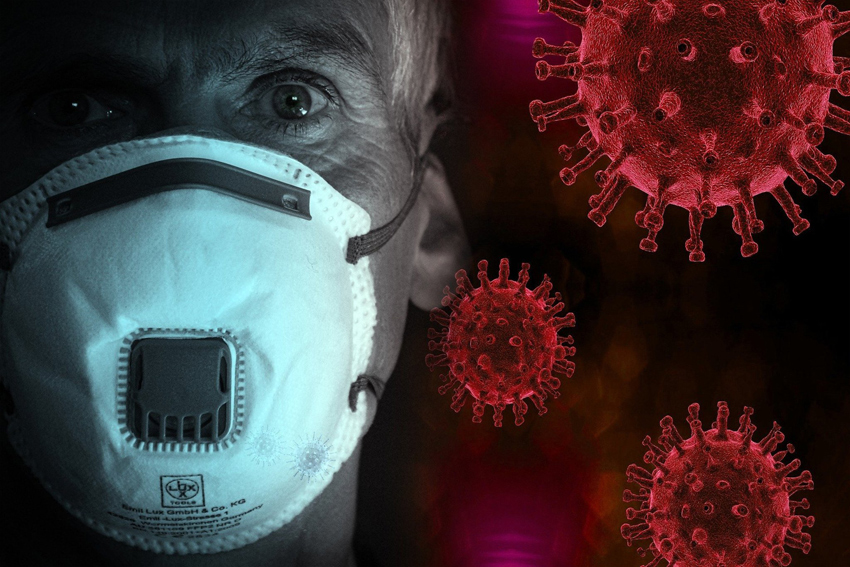
The Issue
A year into the pandemic, anything and everything in our world seems to have been touched, if not transformed. Some of those changes are transitory but others may outlast the pandemic. Ethics and values have changed dramatically as a result of our fear-based experience with the virus, in some ways beneficial and, in others, less so.
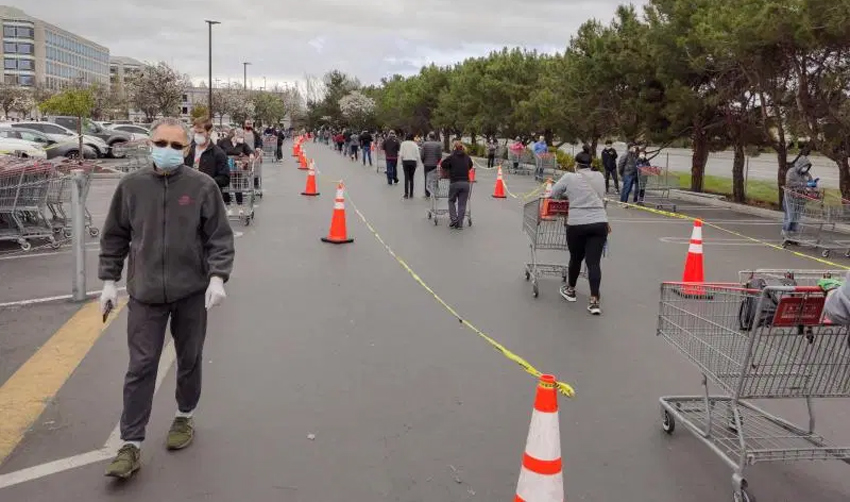
This blog addresses the question of what key or significant transformations have occurred in stakeholders, public health, and public administration and infectious disease decision-making. Given the wide subject matter and space limitations, this blog must be somewhat more subjective than normal.
Changes in Stakeholders
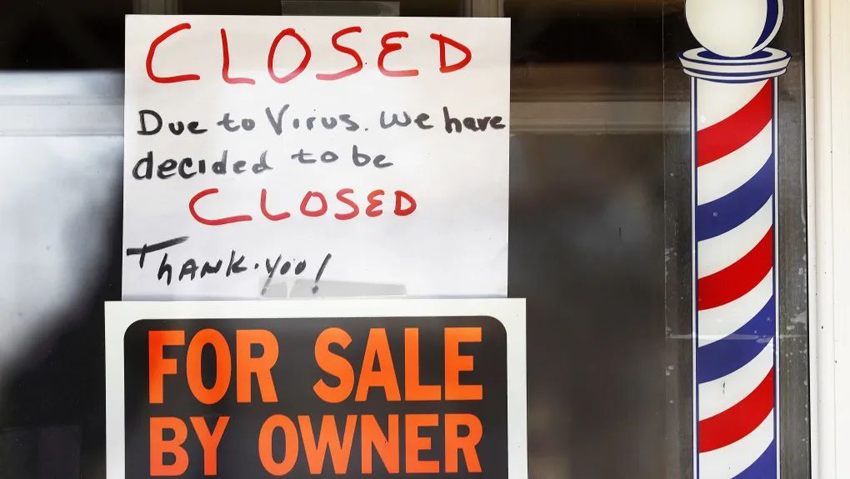
Our year-one-to-date experience with pandemic adaptation and recovery has a pattern that most resembles a “K curve”: that is, some stakeholders have survived and prospered (upward arc: includes investors, affluent elderly) while others have seen their lifestyles collapse (downward arc: students, artists, and service workers).
Among the more significantly impacted stakeholders are the following:
| Stakeholder | Effects of COVID | Implications Beyond COVID |
| Health-care scientists | Increasingly being asked to predict the future without sufficient data | Unwittingly stoke contagion fear in population (when there are other epidemics like opioid crisis) |
| Front-line health care workers (1) | Stronger public appreciation of unselfish duty of care of these protectors | Need for heavy long-term moral damage counselling |
| Public safety officers (2) | More of the same duties with limited public identification or attention | Bio-ethicists not appreciably visible in public discussions or ethical decisions in hospitals |
| Front line essential service workers (3) | Contingent work force accelerated in various sectors often without sick pay or pandemic pay benefits | Possible implications in terms of future minimum and living wage standards negotiations |
| Retailers | Drastic financial and morale effects due to partial or full lockdowns | Serious loan and mortgage repayment obligations |
| Businesses | Re-focus on work at home and remotely | Debate about re-shoring/ on-shoring versus offshore sourcing |
| Hospitality industry (restaurants , hotels and travel) | Drastic cutback in jobs, revenues, and investments | Lingering widespread concern with mortality salience (fear of close continuous contact) |
| Office workers | Decline in face-to-face meetings, inside and outside the office | New ex-urban home purchase location decisions |
| College and university students | Required switch to remote and distant, online education | Hollowing out of staff and numbers of universities |
Source: EthicScan Knowledgebase(1) physicians, nurses, lab technicians, personal support workers;
(2) police, firefighters, ambulance, correctional officers
(3) cashiers, farmers, freight haulers, garbage collectors, delivery workers, warehouse workers
The medical profession comes in for harsh criticism from French philosopher Bernard-Henri Lévy in his recent book, The Virus in the Age of Madness for “abuse of knowledge,” for feeding too easily into the fears of the population. “First off, the doctors often do not have any more information than [the rest of] us and the blind trust that is invested in them is something absurd.” He provides a long list of “expert” assertions about the coronavirus and its transmission that have been proved wrong since the outset of the pandemic. The most pernicious of these myths may be the idea that children must be kept out of school. Levy rejects the idea that the virus is a warning from nature, the inevitable result of global capitalism; he questions the heroic status of doctors, asking us to think critically about the loci of authority and power; and he challenges the panicked polarization that dominates online discourse.
Changes in Public Health Attitudes and Behaviours

Fear has been a cornerstone of public policy and that has had serious effects on priorities. Fear of what we can’t see, fear of the stranger, and fear of the unknown. “The goal should not be to defeat the adversary at any cost but to preserve one’s society,” says Lévy. “People keep saying this is an unprecedented pandemic. That is not true. Humanity has had to deal with many pandemics, often more grave than this one. There seems to be an intention, a collective desire, to panic. It is not as big a disaster as we think.”
Fear alone can drive us to our worst ethical behavior. Fear mixed with common sense and good science can dispose us to take the actions we ought to take. The relentless rhetoric and media coverage by cable news channels and social media of an invisible enemy being kept at bay by front-line and health-care workers seems (unfortunately) to be all-pervasive nowadays. Perhaps resilience lies in not fearing everything but fearing the right things.
Attitudes toward the nature, meaning and consequences of virus contagion are very powerful determinants of overall population health spending and results. Some of the major attitudinal public-health changes that have accompanied the pandemic include:
- treating the virus as a malevolent sentient actor: rather, it’s an inert virus, not a living bacteria
- willingness of individuals to engage in selfish behaviour (not wear mask, jump vaccine queue, and panic buying)
- growth in snitch culture
- accept isolation (give up familiar contact with family, friends) as necessary norm
- those with non-COVID illnesses, comorbidities or conditions are less likely to seek care
- acceptance of “social distancing” terminology when what we want is “physical” distancing
- attach blame for the origin of the virus to a particular nation or people of a specific ethnicity/nationality
We might speculate about which behavioural changes are transitory or long lasting:
PUBLIC HEALTH BEHAVIOURAL CHANGES |
||
Enduring |
Transitory: last as long as pandemic |
Uncertain |
Hand sanitizer available in public places |
Handshakes, high fives, hugs, and kissing cheeks |
Increase in the sale of comfort foods, carbs and sugary products |
Ordering on line |
De-emphasize personal contact business meetings |
Purchases of home pets and exercise equipment |
One person per nursing home room |
Avoid dining-in restaurants |
Appeal of entering crowded spaces |
Pubic posting of hygiene standards |
Expand delivery and take out options |
Distance learning in schools and colleges |
Offer workers the option to work remotely |
Reduction in total auto and airline emissions |
Social distancing preferences in travelling, dating, other behaviours |
More conscious after bathroom hand washing hygiene |
Avoid direct touching keypads, handles |
Attachable home toilet bidets |
Increase in telehealth primary care |
End of communal, buffet food service |
Respect for the power of mother nature |
Changes in Public Administration and Decision-Making
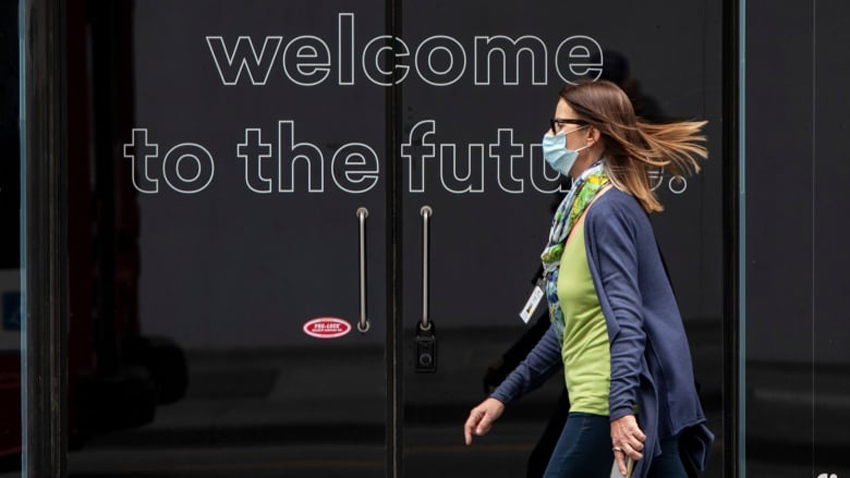
There have been a number of new normal changes in public health attitudes and administration. Some significant ones in Canada include
- willingness to punish the well and sick together (isolation, closure businesses and schools) rather than focusing on targeted high risk populations
- realization that children need face-to-face education for their mental health
- impossible to ignore any longer the scandal affecting nursing home care regulation
- willingness to accept government emergency edicts as governance model
- increased coordination between ambulance, hospital and convalescent care facilities
- the beginnings of support for applying the notion of “vaccine privilege”, personally and nationally, in business, travel and access to services.
| Public Decisions | Effects of COVID | Implications Beyond COVID |
| Triage decisions in hospitals | Protocols discussed in many institutions | Update triage policies and procedures |
| Closure of schools | Unacceptable impact on younger children’s development | Possible long term impacts on socialization and self confidence |
| Lockdowns of businesses | Disastrous impact on responsible businesses when it is the cornerstone of policy | Long term personal and national indebtedness |
| Self-isolation for infection-fighting transmission protection | Strain on individual health especially in disadvantaged communities | Emphasis on isolation, distance for protection hard to overcome |
| Need to hire and retrain more nurses, PCWs | Only some jurisdictions took active steps | An aging society needs more home and critical care practitioners |
Source: EthicScan Knowledgebase

In countries such as Italy, China, the United Kingdom, and Spain, front-line medical staffs have faced a dilemma throughout the COVID-19 crisis: Which patients should be treated first when resources are stretched to the limit? Should you save as many patients as possible, or save patients with the most urgent need? In such an out-of-control scenario, as discussed in EthicScan blog Are We Ready for COVID Wave Two: an Ethical Analysis (September 28), the guiding ethical principles for the provision of health care may be “save the most lives” or “save those most likely to recover” or “save people first who can preserve society” (like health-care workers and public safety officers).
In a pandemic certain public ethical values appear worthy to remain the same. These include:
- (a) we have essential duty to respect and care for others and for ourselves;
- (b) the poor and disadvantaged should not bear harm more than everyone else;
- (c) we must weigh the necessity of social distancing against the right of assembly and the moral imperative of widespread diagnostic testing; and
- (d) we must strive to redress harsh and unfair societal determinants to health.
Other ethical values can and have changed. These include:
- (a) our usual ethical assumptions about who should get treated can (and did) give way in the face of scarce medical resources and the threat of disorder;
- (b) we need to abandon the principle of ability to pay or first come-first served as criteria for who gets care;
- (c) one size fits all solutions disregard the hard-worn knowledge that we already knew early on in wave one (about who were the most vulnerable) yet we chose not to target or ameliorate their risk before wave two hit;
- (d) High Tech has not fulfilled its promise in terms of testing, contact tracing and quarantining; and
- (e) the media displayed a self-serving, often non-helpful, pre-occupation with pandemic news.
When we think of the phrase, “Do the right thing,” we usually think of taking an ethical action that would benefit someone in the here and now. No pandemic changes that priority. But a pandemic also requires that we act ethically with a long view. We may never see the benefit of actions we take like mask wearing or social distancing other than in charts that show in months ahead a slowing rate of infection in our community. We also may never personally know all those who have been helped by our actions to acknowledge front line workers or prevent the spread of the virus.
Conclusion
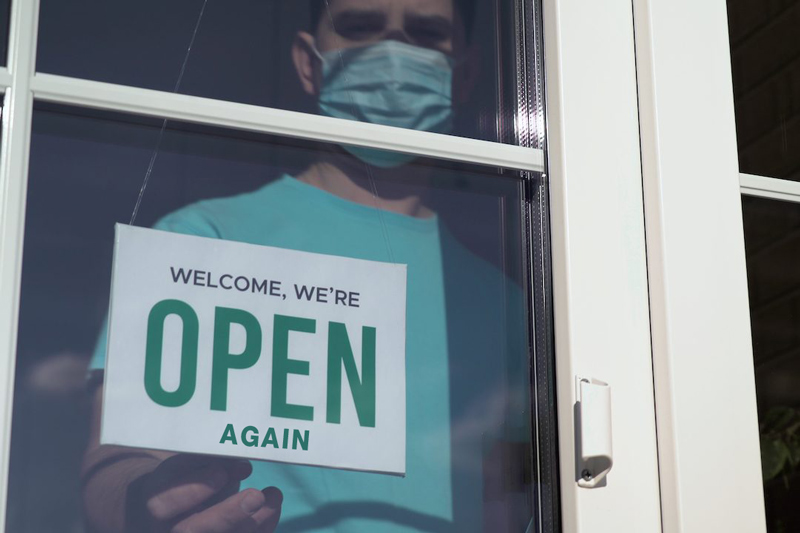
What is the right thing to do or think has been changed by the pandemic. More selflessness and public engagement is necessary as the current pandemic may, as a result of mutations, become chronic (endemic) rather than a conquerable disease.
Need More Answers?

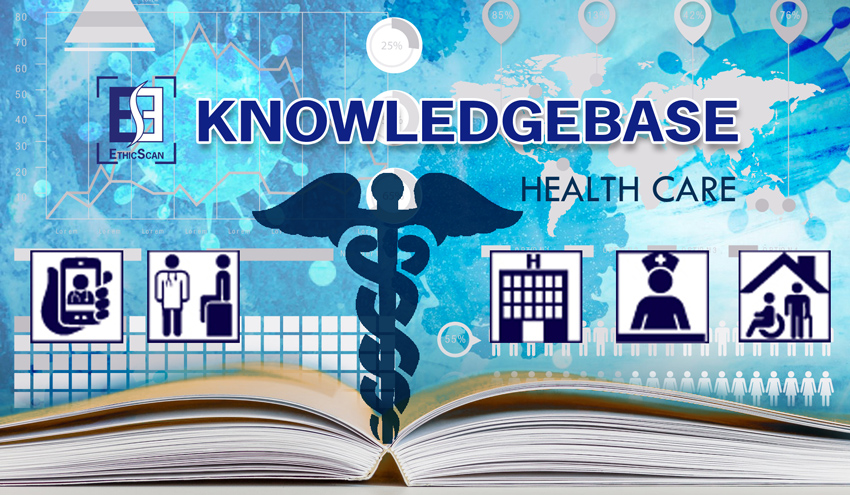
Subscribe to the EthicScan Knowledgebase for in-depth research and the opportunity to share information with industry experts, policy-makers and other health-care professionals.
Sign up for New Blog Alerts

Sign up here for free new blogs to be sent to you
Further Readings
Markkula Center for Applied Ethics – Five Ethical Basics in the Face of the Coronavirus Pandemic:
https://www.scu.edu/ethics-spotlight/covid-19/five-ethical-basics-in-the-face-of-the-coronavirus-pandemic/
University of Nevada – COVID-19 and the Ethical Questions It Poses:
https://www.unlv.edu/news/release/covid-19-and-ethical-questions-it-poses
EthicScan Blog – Upcoming Third Wave:
http://ethicscan.ca/blog/2021/03/03/upcoming-third-wave/
The Harvard Gazette – Keeping ethics alive during the pandemic:
https://news.harvard.edu/gazette/story/2020/04/how-to-keep-ethics-alive-during-the-coronavirus-pandemic/
Reader’s Digest – 13 Everyday Habits That Could (and Should) Change Forever After Coronavirus:
https://www.rd.com/list/everyday-habits-that-could-change-forever-after-coronavirus/
Markkula Center for Applied Ethics – “Othering,” Bad and Good, the Coronavirus:
https://www.scu.edu/ethics-spotlight/covid-19/othering-bad-and-good-the-coronavirus/
EthicScan Blog – Cure Vs Care:
http://ethicscan.ca/blog/2020/03/24/cure-vs-care/
DW – Opinion: For life after COVID, vaccinated must be patient:
https://www.dw.com/en/opinion-for-life-after-covid-vaccinated-must-be-patient/a-56460480
The Times UK – Bernard-Henri Lévy interview: coronavirus has sent the world into ‘psychotic delirium’:
https://www.thetimes.co.uk/article/bernard-henri-levy-interview-coronavirus-has-sent-the-world-into-psychotic-delirium-lz5sn8gnn
The Globe and Mail – Bernard-Henri Lévy and the true toll of pandemic shutdowns:
https://www.theglobeandmail.com/opinion/article-bernard-henri-levy-and-the-true-toll-of-pandemic-shutdowns/
EthicScan Blog – Ethical Risk – Hospital Triage Decisions:
http://ethicscan.ca/blog/2021/01/04/ethical-risk-hospital-triage-decisions/
Money Control – A philosopher and a novelist reflect on the pandemic:
https://www.moneycontrol.com/news/trends/book-review-trends/a-philosopher-and-a-novelist-reflect-on-the-pandemic-5628191.html
EthicScan Blog – The Debate Over Government’s COVID Decisions Goes Public:
http://ethicscan.ca/blog/2020/10/05/the-debate-over-governments-covid-decisions-goes-public/
- Ethics Lens on COVID: A Year of Fear - March 10, 2021
- Upcoming Coronavirus Third Wave - March 3, 2021
- An Immoral Side Of COVID - February 24, 2021